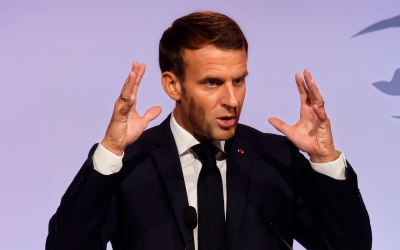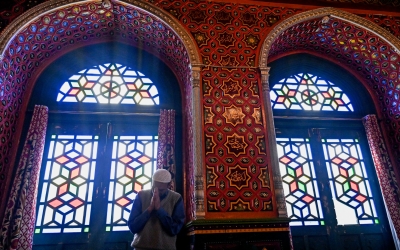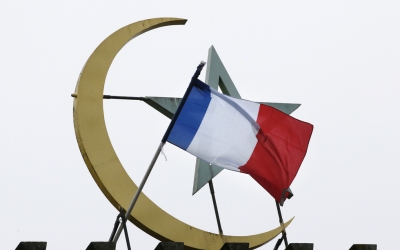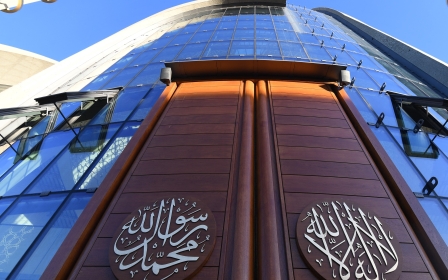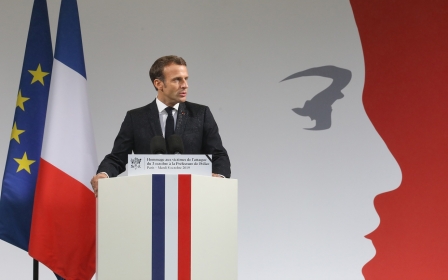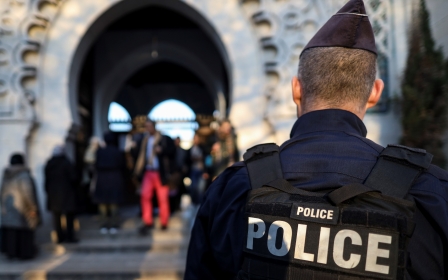Paris attacks trial: Was justice truly served?
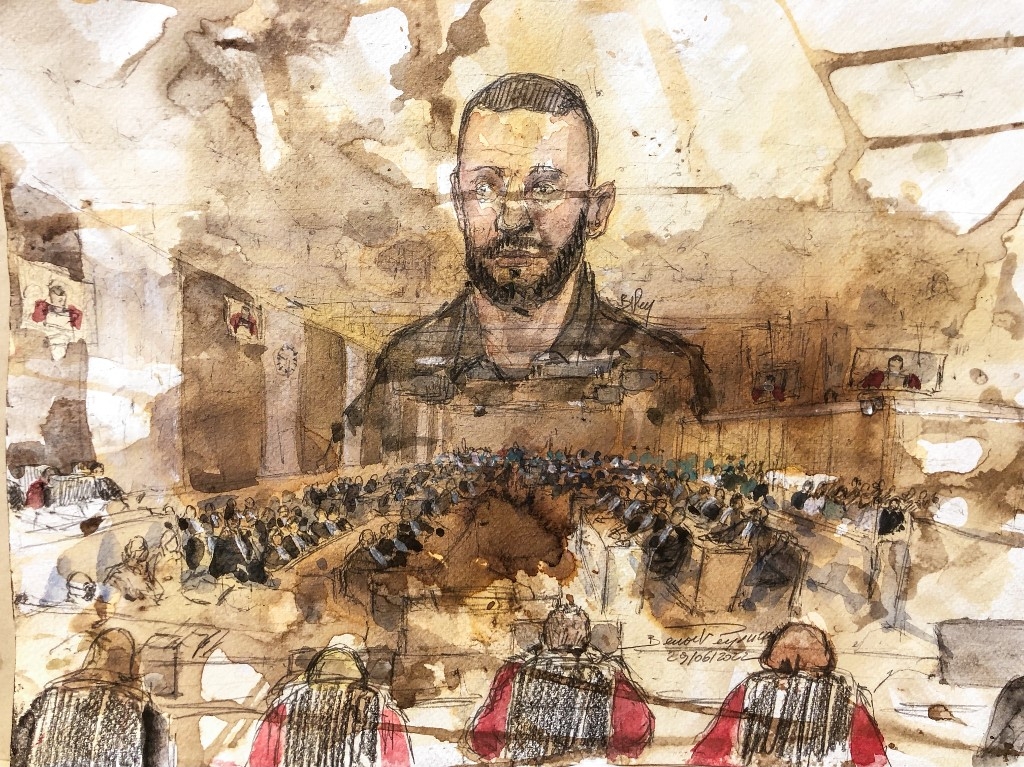
“It is not religion that is at the origin of the attacks; it is war. It is not jihadism that precedes war; it is war that precedes jihadism,” lawyer Isa Gultaslar, representing defendant Sofiane Ayari, argued during his closing remarks before a Paris court.
After an excruciating months-long trial, will the guilty verdicts bring closure to the survivors of the 2015 Paris terrorist attacks? Did the French justice system identify and condemn the parties most responsible for the suffering of the victims and their loved ones?
The innocence of the leaders of nations targeted by such attacks is much harder to defend
Gultaslar bravely argued the case from a strictly legal perspective, underscoring the blatant contradictions of the historic trial: why did the court deliberate on the attacks from the legal perspective of “peacetime acts of terror”, given France’s hawkish policies in the context of the war in Syria?
The attacks indiscriminately targeted innocent civilians, that much is clear. But the innocence of the leaders of nations targeted by such attacks is much harder to defend. Are westerners to some extent responsible for the rise of the mindless and indiscriminate violence we call “jihadism”? Is “terrorist” violence targeting Europe and the US strictly a matter of religion, or must another political aspect to the phenomenon be considered?
In other words, are western civilians being targeted for “who they are”, or simply for what they do? Consequently, did the Paris court actually condemn, as promised, those responsible for the Paris attacks - or did it merely identify and sentence a tiny fraction of the guilty parties?
New MEE newsletter: Jerusalem Dispatch
Sign up to get the latest insights and analysis on Israel-Palestine, alongside Turkey Unpacked and other MEE newsletters
Flawed mindset
Such are the thorny but essential questions raised with the trial’s wrap-up late last month, to which the public response, beyond a few brief moments of clarity, was overwhelmingly negative - influenced, no doubt, by the predominant tone of the legal arguments presented day after day.
As the trial unfolded, an analytical framework was established according to a three-pronged logic: the potential political dimension of the actions of the accused, who had acknowledged taking part in the attacks, was to be euphemised, discredited and rejected.
But ending the long-awaited trial on such a note is not only prejudicial to the principles of reason and the memory of the victims; it is also utterly counterproductive. If the months of hearings and reams of documents have served only to deepen the misunderstanding that divides our planet, then there are likely to be more, rather than fewer, future victims of this enormous divide.
The notion that the misinterpretation of Islamic doctrine - both in the East, in places such as Iraq and Syria, and in the West - is the sole cause of acts of terrorism directed at western civilians, among others, should be increasingly difficult to defend.
Today more than ever, the argument that the West in general, and France in particular, are dealing only with an “offensive” jihad fuelled by sectarian hatred, and not with a mostly “defensive” form of counter-violence emerging from Muslim frustration over policies targeting them both at home (in the form of ostracism) and abroad (in the form of direct interference or blind compromise with local authoritarian regimes), is no longer plausible.
Terrorists as 'Others'
And yet, the overwhelming majority of elected representatives across the political spectrum have nonetheless untiringly repeated throughout the months of hearings: “It’s not our fault. It’s the fault of Islamism!”
They have the endorsement of certain academics, together with the laughable backing of a few distinguished members of the “native informant” crowd and various self-appointed experts. Most refuse to give any credit whatsoever to the notion of reactive abuse, though it was hammered home by at least two of the defendants and put forward, posthumously, by their accomplices, notably in a recording found in the wreckage of the Bataclan.
“You’re bombing our brothers in Syria and in Iraq,” one of the attackers says in the recording. “Why are we here, us? We’ve come from Syria to do the same to you.”
A vision of jihad purged of any political motivation whatsoever is regularly and forcefully contradicted
Even prior to 9/11, the French government was a regular backer and sometimes a direct player in Egypt, Tunisia and Algeria - not to mention its appalling abuses in Afghanistan and Mali, committed, of course, in the name of “the fight against terror”.
Those who proclaim France is not accountable for the rise of extremist violence have attempted to weaponise the “confessions” of jihadist groups, including a rant in Dabiq, the Islamic State (IS) magazine, which stated: “The fact is, even if you were to stop bombing us … we would continue to hate you because our primary reason for hating you will not cease to exist until you embrace Islam.”
Random IS spokespersons have at various times sanctioned such exclusively sectarian hate language, and in so doing, endorsed the unequivocally one-sided view to which westerners love to cling: “They are fighting not what we do to them, but what we are.” France from this perspective can only be found guilty of its love of freedom, and of the French people’s venerable passion for drinking good wine in elegant sidewalk cafes.
Notes of dissent
In the long catalogue of unilateralism, there have been rare moments of realism. During the Bataclan trial, a former French security chief courageously hinted that a large part of the responsibility lay on the shoulders of the leaders of the societies targeted by the attacks, declaring on the witness stand: “I believe terrorism results from the combination of fertile grounds for jihad and a deep malaise in a society.” He later added: “We get the terrorism we deserve.”
Even more explicitly, Ayari gave testimony calmly laying out the purely “political” nature of his motivations. But such notes of dissent were quickly drowned out by a flood of sharply contrasting witness accounts.
In cases of such complexity, does the supposed “unconditional proof” found in the expression of intent have any real value? It is indeed quite odd, but alas highly typical, to give weight only to the parts of the accused’s declarations that concur with the opinions of the victims.
A vision of jihad purged of any political motivation whatsoever is regularly and forcefully contradicted by a far greater number of parties involved. But the media doesn’t give a hoot about voices that contradict popular opinion or call for a more nuanced account of highly complex topics.
Terrorism, in other words, is “Islamic” in nature, and our superior system of values alone is what makes us its designated victims. Since the Islamists say so themselves, why look any further? Such is the insidious (and costly) trap that we must avoid falling into, at all costs.
Universality of terrorism
A quick overview of history reminds us of a regularly overlooked truth: the use of indiscriminate violence to compensate for military and institutional weakness is universal.
The first victims of a car bomb were killed in New York in 1920 at the hands of an Italian anarchist, not in Jerusalem by a “Hamas Islamist”. It was the Zionist militias in Jerusalem who made such techniques prevalent in the region, such as through the King David Hotel bombing.
Although terrorism is admittedly a weapon used by the weak, it is also the rhetorical (and at times military) weapon of choice of the strong in their attempts to discredit the grievances of the weak.
It is not by reforming religious thought that we will pacify the world. It is by pacifying the world that we will reform religious thought
The French resistance fighters, for example, were “terrorists” in the eyes of the Nazis. Yet, they went on to accuse Algeria’s resistance fighters of terrorism simply for seeking independence. This is to say nothing of the Israelis, who as recently as last autumn criminalised along the same lines the leading pro-Palestine NGOs.
Is the sectarian criminalisation of the enemy - the very thing that leads to attacking adversaries for “what they are”, rather than what they do - a component of IS-style terrorism? Of course; there is no denying this. Indeed, IS has written a new page in history, drawing on the old story of the fiercely unbridgeable "Otherness" of the western world - a chapter that the founders of modern global jihadism, al-Qaeda’s Osama bin Laden and Ayman al-Zawahiri, had essentially shied away from.
The reason for this is fairly clear. Unlike the Afghan theatre, where sectarian divisions exist but have never played a central role, the Sunni-Shia divide rapidly became a major variable in the destruction and then the reconstruction of Iraq and Syria.
Sectarian violence
After a decade of prioritising political confrontation with the distant enemy (the US), IS tacticians chose to redirect their efforts to enemies closer at hand (the Shia), putting what quickly became an all-pervasive emphasis on the sectarian criminalisation of their opponents both in practice, through systematic massacres, and through rhetoric.
Yet, although the racist criminalisation of the enemy is closely associated with IS strategy, does this mean that all forms of terrorism necessarily emerge from this? Is there even anything specifically “Islamic” about it? And does it exclude, moreover, the ocean of other considerations that are so trivially political? Nothing could be less certain.
The lessons of western history come to mind here, notably the “civilising” rhetoric that attempted to conceal the West’s long list of colonial crimes.
Alas, as we turn the page on the dark episode of the Bataclan attacks, the old refrain urging the unilateral criminalisation of “Others” is still ringing out.
It sets the comfortable rhythm of a universally accepted score, drowning out all hopes that a flash of lucidity, or even realism, could shatter the editorial and political certainties of the majority. This destroys the slightest hope that this terrible page indeed belongs to a final chapter of history - and that it isn’t the inescapable harbinger of worse things to come.
It is not by reforming religious thought that we will pacify the world. It is by pacifying the world that we will reform religious thought.
The views expressed in this article belong to the author and do not necessarily reflect the editorial policy of Middle East Eye.
This article has been translated and condensed from the MEE French edition.
Middle East Eye delivers independent and unrivalled coverage and analysis of the Middle East, North Africa and beyond. To learn more about republishing this content and the associated fees, please fill out this form. More about MEE can be found here.



